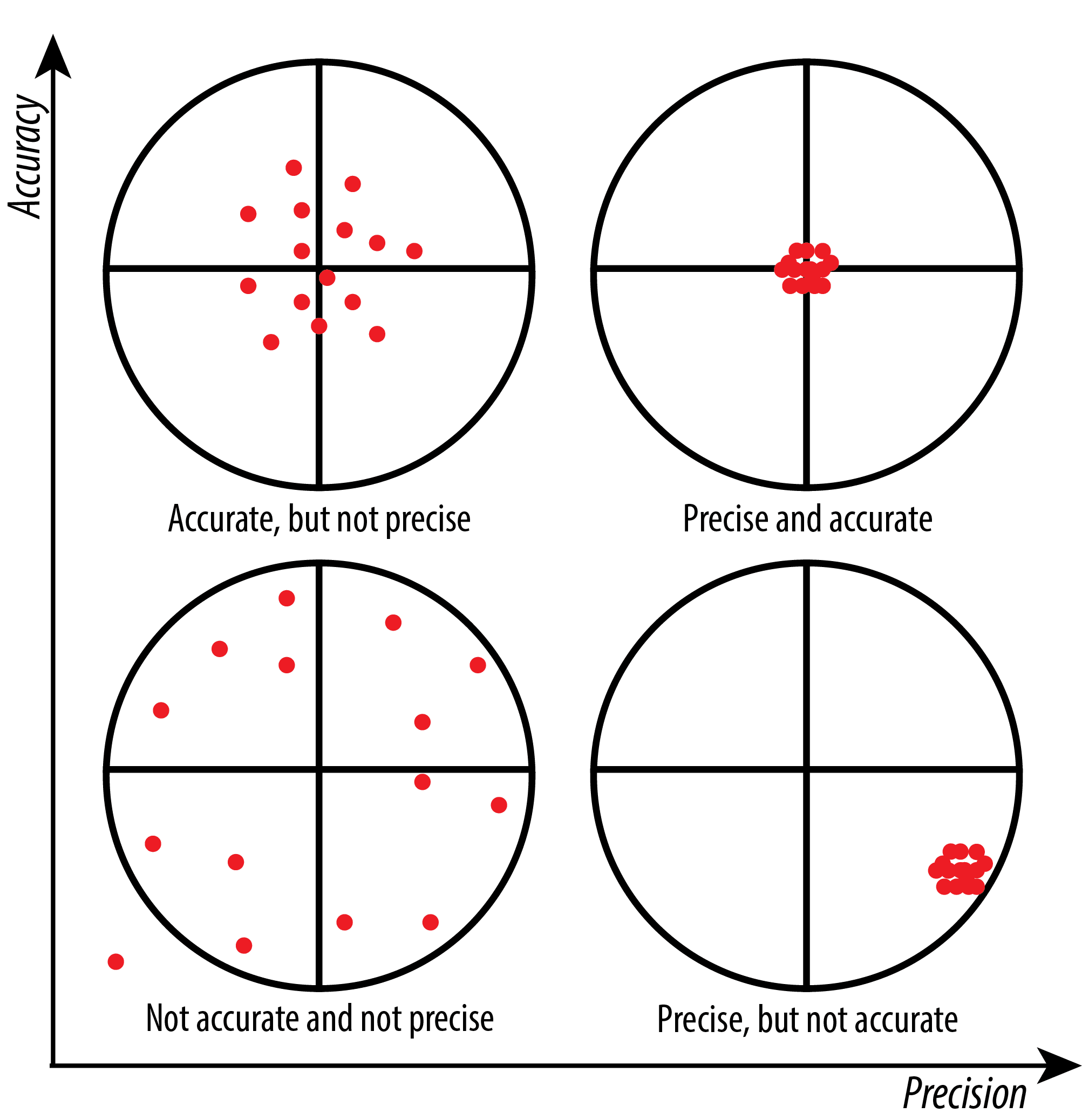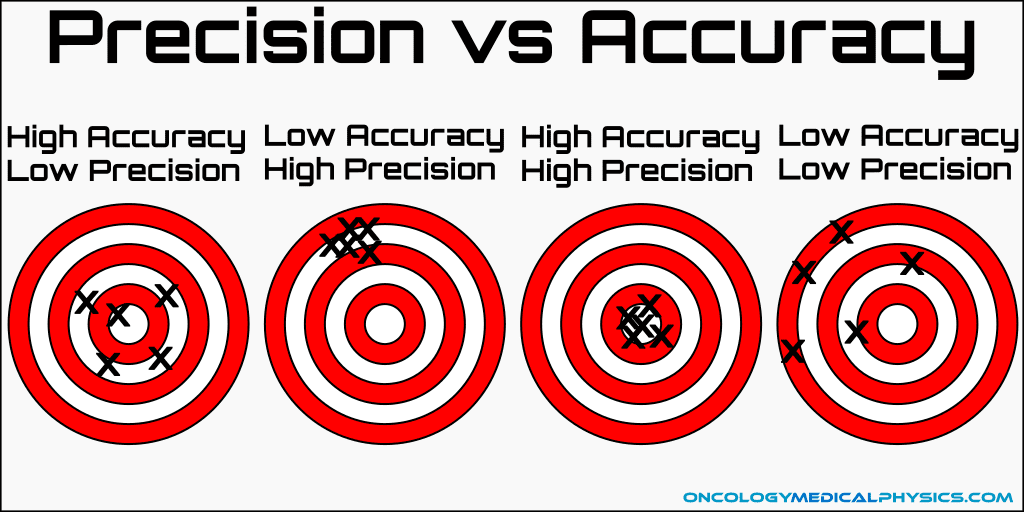What is the accuracy and precision of the thermometer and when was it last calibrated?
All scientific instruments (including thermometers) have varying degrees of accuracy and precision:
Both are sources of inaccuracy in measurement. Calibration can reduce inaccuracy, but precision is a function of the instrument itself and its operating conditions.
You don’t tell us what sort of thermometer you are using but if it is a cheap alcohol filled tube that you might buy in a souvenir store, it has probably never been calibrated and might be out by several degrees. If it’s a reasonable electronic one such as you might buy in a hardware store, errors are likely to be in the order of a degree or so providing it’s new or recently calibrated. If it’s a high precision laboratory instrument with recent calibration errors could be less than a tenth of a degree. Consult the literature that came with the instrument, it will tell you all about its accuracy and precision. If it didn’t come with literature, you might as well not bother.
In addition, how you measure the temperature is also going to matter. You should be measuring in several positions in the room and be using the median temperature. You need to be away from walls, doors, and windows and out of drafts. You also need to repeat the measurements in the same places at the same time over several days.
If you present this kind of robust data, it will be very hard for anyone to argue against it. As the person asserting the fact (it’s too cold), the onus rests on the tenant to prove it.

